Dig the music Mister Deejay: Handsworth’s reggae heritage
In my post on the Lozells and East Handsworth Heritage Trail, I mentioned the area’s rich musical heritage. The diversity of Handsworth has helped to nurture an amazing variety of musical talent down the years: the jazz of Andy Hamilton and more recently Soweto Kinch, singer-songwriter Joan Armatrading, the Brum Beat of Steve Winwood and the Spencer Davis Group, the soul and gospel of Ruby Turner; not to mention Bhangra (the Soho Road to the Punjab website tells the story very well). However, because I’m an obsessive fan of Jamaican music, I wanted to blog about the huge role that Birmingham – and in particular Handsworth – has played in UK reggae. At one point in the 1980s, Birmingham had probably the three biggest-selling reggae acts in the world in Steel Pulse, UB40 and Musical Youth. Yet for some reason – UB40 and Pass the Dutchie aside – Birmingham’s reggae heritage isn’t something all that widely known in or celebrated by the city. The story is one of blues parties, sound systems, record shops, labels and bands – and some great music.
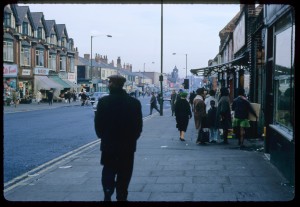 In the post-war years, alongside South Asian, Irish and white working class Brummies, the Afro-Caribbean community made its home in Handsworth, to the extent that local hero and dub poet Benjamin Zephaniah described it as “practically the Jamaican capital of Europe”. Blues parties – or ‘shebeens’, borrowed from the Irish síbín, literally meaning ‘illicit whiskey’ – happened in all kinds of venues, from private houses to factories (brilliantly, Steel Pulse even played one of their first gigs in the back room of Handsworth Library), alongside more conventional clubs like Frontline and the Ridgeway and pubs. These parties were a focal point of the Jamaican community, to hear music from ‘back home’ – ska and then rocksteady in the 1960s; later roots reggae and dub – free from the potential hassles of city centre pubs and clubs. Local venues like the Santa Rosa, the Rialto and the Monte Carlo played host to legendary Jamaican singers like Burning Spear, Delroy Wilson, John Holt, Ken Boothe, Dennis Brown and one of my all time musical heroes Alton Ellis (that’s him at the top). People came from all over the city, and further afield, for nights out around the Soho Road. Later, even some clubs in town – at least at Eddie Fewtrell venues like Venue Barbarella’s, Rebecca’s and the Cedar Club – also came to embrace reggae.
In the post-war years, alongside South Asian, Irish and white working class Brummies, the Afro-Caribbean community made its home in Handsworth, to the extent that local hero and dub poet Benjamin Zephaniah described it as “practically the Jamaican capital of Europe”. Blues parties – or ‘shebeens’, borrowed from the Irish síbín, literally meaning ‘illicit whiskey’ – happened in all kinds of venues, from private houses to factories (brilliantly, Steel Pulse even played one of their first gigs in the back room of Handsworth Library), alongside more conventional clubs like Frontline and the Ridgeway and pubs. These parties were a focal point of the Jamaican community, to hear music from ‘back home’ – ska and then rocksteady in the 1960s; later roots reggae and dub – free from the potential hassles of city centre pubs and clubs. Local venues like the Santa Rosa, the Rialto and the Monte Carlo played host to legendary Jamaican singers like Burning Spear, Delroy Wilson, John Holt, Ken Boothe, Dennis Brown and one of my all time musical heroes Alton Ellis (that’s him at the top). People came from all over the city, and further afield, for nights out around the Soho Road. Later, even some clubs in town – at least at Eddie Fewtrell venues like Venue Barbarella’s, Rebecca’s and the Cedar Club – also came to embrace reggae.
Burning Spear (left) and Ken Boothe (right)
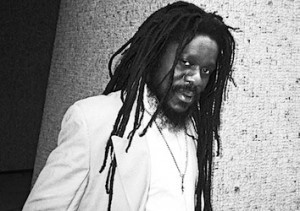
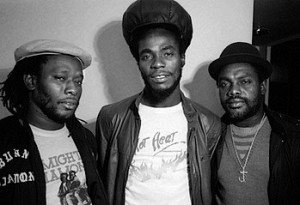
Dennis Brown (left) and the Mighty Diamonds (right)
Another important import from Jamaica was the concept of the ‘sound system’ – in English terms, essentially very impressive mobile discos with turntables, generators, enormous speakers, selecters (who pick the records) and deejays (chatting or ‘toasting’ on the mic). In contrast to the UK, the Jamaican music industry was mainly developed by producers – like Clement ‘Coxsone’ Dodd (whose son ‘Junior’ Dodd was based in Birmingham for a time), Arthur ‘Duke’ Reid and Cecil Bustamente Campbell (better known as Prince Buster) – making records to play on their own sound systems with great singers, groups and studio musicians. Sound systems would therefore compete with one another to play the best, latest, loudest and rarest tunes.
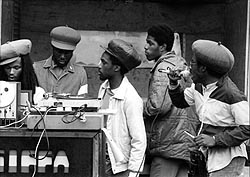
Siffa Sound System
In Handsworth, among those sound systems to pick up this Jamaican template were Quaker City (founded 1966 and still going), Wassifa (founded 1972 and also still going) and Siffa. Quaker City gave a break to Gladdy Wax, whose sound system is these days a yearly staple and highlight of the Notting Hill Carnival. A young Bitty McLean, whose dad ran the Chelmsley Wood Sound in the 1970s, cut his teeth singing with Wassifa and other sound systems. (Incidentally, if you only remember him from his mid-1990s chart efforts, you should seek out his later albums like On Bond Street, where he puts his vocals over vintage 1960s rhythms Duke Reid productions.) You can see a great little video on Quaker City and the UK sound system scene here, which traces the origins of sound system culture, its role in uniting disaffected black youths, its positive social impact and even its role in the birth of rave culture.
Lee ‘Scratch’ Perry
Meanwhile, several record shops selling Jamaican imports sprang up in the 1970s. The most prominent were Keith Thornton’s Black Wax shop on Lozells Road, emblazoned with the distinctive Gorgon’s head that also featured on the records they issued, and Brian Harris’s on Grove Lane, known later as Mango. Between them their labels – Black Wax, Mango and Locks – gave UK releases to Jamaican greats like Pat Kelly, Lee ‘Scratch’ Perry, Justin Hinds, the Mighty Diamonds, Leroy Smart, Tappa Zukie, Gregory Isaacs, Susan Cadogan and Junior Byles, in most cases well before they were picked up by major labels in the wake of Bob Marley’s international success. (As you can see from the photos below, following a chance discover at The Diskery, I have slowly been trying to repatriate some of these records to Brum.) The two also became pretty much the national centre for the wholesale reggae import market. Keith Thornton was later behind Tempest Records on Bull Street in town, which sadly closed its doors in 2010. Brian is still semi-active, most recently putting out several excellent ska collections produced by soundman Vincent ‘King’ Edwards, who he told me casually he met “in Jamaica back in sixties”…
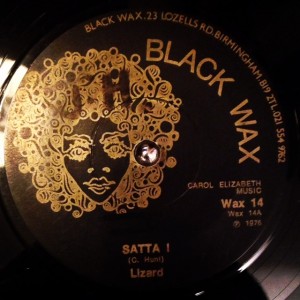
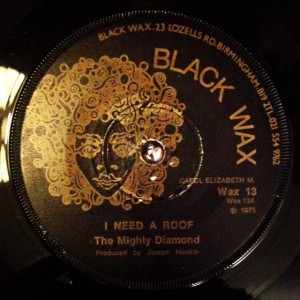
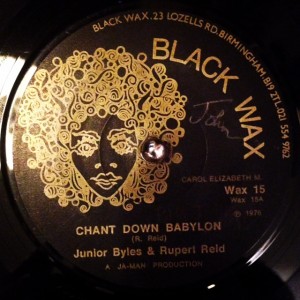
 This vibrant environment provided fertile ground for lots of bands; some successful, others lost to history (at least in recording terms). The most prominent was Steel Pulse, who took the rasta themes of Jamaican roots reggae and put it in an inner city Birmingham context. After a couple of albums on independent labels, they signed to Island Records, found some common cause with anti-establishment punk rockers, headlined Rock Against Racism and made the cover of the NME. Their Handsworth Revolution album (1978), with its mixture of social commentary on issues such as racism and discriminatory policing, and sadly prophetic warnings of conflict, ranks as one of the landmark reggae albums, UK or anywhere else.
This vibrant environment provided fertile ground for lots of bands; some successful, others lost to history (at least in recording terms). The most prominent was Steel Pulse, who took the rasta themes of Jamaican roots reggae and put it in an inner city Birmingham context. After a couple of albums on independent labels, they signed to Island Records, found some common cause with anti-establishment punk rockers, headlined Rock Against Racism and made the cover of the NME. Their Handsworth Revolution album (1978), with its mixture of social commentary on issues such as racism and discriminatory policing, and sadly prophetic warnings of conflict, ranks as one of the landmark reggae albums, UK or anywhere else.
Around the same time, The Beat were also based in Handsworth. They fused ska, punk, pop and soul to original effect, and their multiracial line-up included St Kitts-born drummer Everett Morton and toaster Ranking Roger alongside white working class Brummies Andy Cox and Dave Wakeling (and David Steele from the exotic Isle of Wight…). By the time of the their first single, a cover of Tears of a Clown on The Specials’ 2-Tone label, they had been joined by an older Jamaican saxophonist – Lionel ‘Saxa’ Martin – who had played with Prince Buster and (apparently) The Beatles, who they met in The Crompton Arms pub. Handsworth was gigging territory for other Birmingham bands too, like Musical Youth (formed in 1979 at Duddeston Manor School) and Moseley’s Beshara, who had a reggae chart hit with lovers rock tune Men Cry Too, but were equally at home playing roots reggae and backing some of the touring Jamaican acts mentioned earlier.
These were really only the most prominent of a whole series of Handsworth reggae acts. Outside of the mainstream music industry, in the early 1980s Black Symbol released their music in small numbers on their own label, as well as the highly sought-after Handsworth Explosion compilations. The latter records were intended to support other talented artists in their community and were recorded, released and distributed without any outside help. Thankfully, more than 30 years on, these records are now being re-released by Bristol’s fantastic Reggae Archive Records. On Black Symbol Present Handsworth Explosion Volume II – apparently Volume I is due later in the year along with some other Black Symbol reissues – you can hear some really special reggae from otherwise obscure acts (to me, at least) Man From the Hills, Black Knight and Mystic Foundation, alongside Black Symbol themselves and a young Benjamin Zephaniah. Reggae Archive has also released an excellent compilation by Eclipse, ” one of the great lost reggae bands of Britain” friends and contemporaries of Steel Pulse, who never achieved the same level of commercial success, and its sister label Sugar Shack has put out Journey, the first new Black Symbol release in 30 years. Hopefully there will be more of the same Brummie reggae to come from them.
A little later came Pato Banton (here in scorching and occasionally hilarious form on the 1985 Handsworth disturbances) and Apache Indian, who both had massive chart success in the 1990s. Apache Indian – aka Steven Kapur – in particular is a unique product of Handsworth. Born to Punjabi parents, he worked driving Birmingham sound systems all over the country before having a go on the mic himself, blending dancehall reggae with his Indian heritage (e.g. his first record Movie Over India uses The Skatalites’ Shank I Sheck rhythm as the basis for a lesson in Punjabi culture).
Born as I was in the same year that Steel Pulse released Handsworth Revolution, it’s easy to feel like my generation missed out on a lot of this. Most of the venues are gone, people move on, but the records live on. And luckily Steel Pulse, Apache Indian and Musical Youth will be playing in the splendour of Handsworth Park again very soon…
———————————————————————————————————————————————————–
Steel Pulse (a rare UK appearance), Apache Indian and Musical Youth will all be performing at the free Simmer Down Festival in Handsworth Park on Sunday 20th July 2014.
The black and white photos of the singers here are by Pogus Caesar from the series ‘Reggae Kinda Sweet’, mostly taken in Birmingham and are used with his kind permission (©Pogus Caesar/OOM Gallery Archive). You can also see more of his photography on the excellent Digital Handsworth website.
For more info on the music and people of Handsworth, try the Soho Melody site, which aims to tell the story of Soho Road and Handsworth over the last 50 years through the eyes of the people who lived there, inclusion Robin Valk’s excellent ‘Handsworth Evolution’ radio programme.


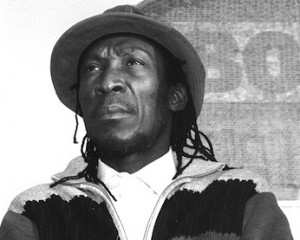
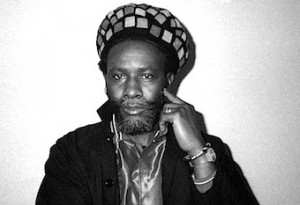
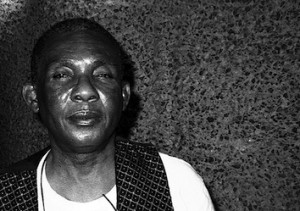
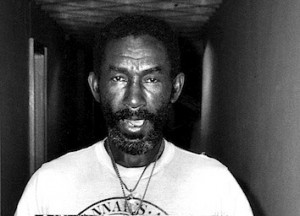
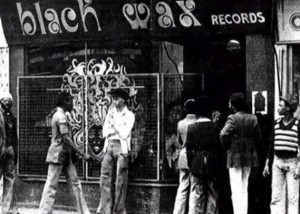
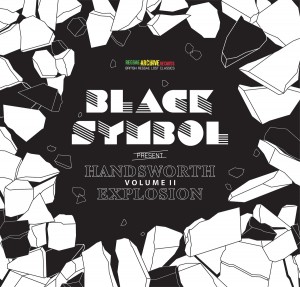
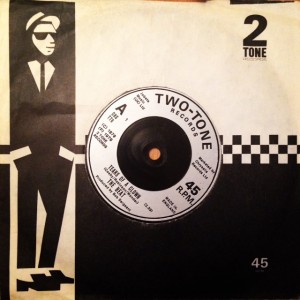
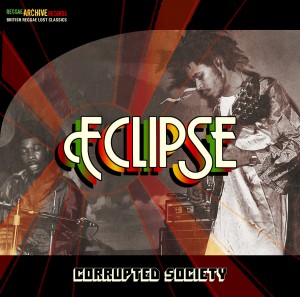
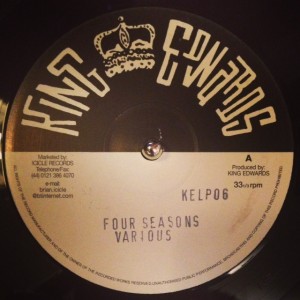
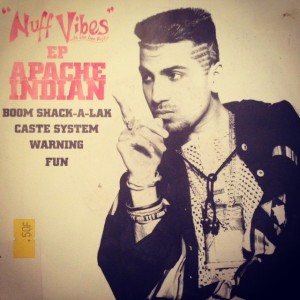
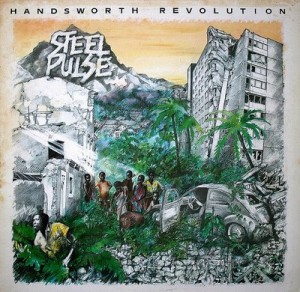

A great article, completely absorbed in the detail. ‘Men Cry too’ was one of my early introductions to Lovers Rock, I never knew Beshara were from Moseley!
I was to young to be around the scene in the 70s but grew up knowing of the bands and hearing a lot of the music. I came on the scene in the early 80s. I finally got to see Steel Pulse at Simmer Down Festival in 2015 YAY!
I bought many a record from Don Christie’s but had no idea of the little independent record shops in Handsworth or Lozells. We followed Wassifa sound system for many years.
My heritage too is Punjabi as Apache Indian so the Indian and Jamaican connection resonated with me, and was very prevalent in the Handsworth & Lozells communities in the 70s from what I’ve been told.
Thoroughly enjoyed this article.
Kashmir
I remember the Blues party’s in Handsworth and Lozells back in the early/mid 70’s. My mates dad used to play at a few and we would go along (late night out!). His Dad was a white Jamaican. Surname – Davis.
Red Stripe, Breaker in cans. Chicken, goat and rice an peas. They were intimidating places for a young white boy but never got any trouble.
If you would like to know a few things about the Handsworth Road drop me a line
Hi Susan wld like to know more please .
Dear Susuan,
I read with great interest your comments, and have very fond memories of my early years living in Lozells and Handsworth. In 1961 I started teaching in St. Michael’s School on Soho Road, I well remember the Handsworth Riots and I loved meeting the African Caribbean Community during my days in Birmingham. I remember opening an African Caribbean Cultural Art Ehhibition at the Libarary on Soho Road. When I was Headmaster in a Handsworth School I organised Holiday Play Schemes and invited members of that community into hel[p with Cooking Demonstrations and Reggae. Such a demonstrative, vibrant and loving community – I retain such happy memories of them. Now, in retirement and aged 77, I am writing a book entitled “The Circle of Faith” with particular reference to the Multi-Cultural, Multi-Societal and Multi Faith communities living side by side in the UK in 2020. I have succeeded in encouraging former pupils and students to support me in writing the book (contributions from Sikhs, Muslims, Buddhists, Hindus, Main stream Christians) who have written to me from Australia, Cyprus, Finland, France, Bangladesh, India and Bavaria. Now to the point! I would just love to include a Rastafarian willing to write about 400 words relating what their faith means to them in their daily living. I would regard this as a very real privilege and honour. I can be contacted at: – hjohnstratton@gmail.com
I had the pleasure to be a presenter for Radio WM between 1982 & 1986 & the show was Sounsystem which began as a 30 minute black music/magazine snap shot of the music & goings on in & around Birmingham at that time. By the time I left to make Spain (Mallorca) my home the show was weekly for 3 hours.
Paul above mentions Barry curtis, I took over after him & I was a regular shopper at Don christies & Summit with frenchie T serving the tunes. Sundays was Faces with Sean Williams, Mambo & Frenchie & don’t forget the Powerhouse soul & funk alldayers. Oh & the challenges against KKJ or Kris Kennedy as he became known. Great memories and many stories… A couple of quick ones. Ronnie McQueen ex base player for steel Pulse was my cousin & lived across the road from me on Sandwell rd & I lived in Westbourne rd as young boys…. Handsworth park was our playground. I interviewed people like Dennis Brown, Yellowman, Peter Tosh, Rita Marley, Melba Moore, Billy Ocean, UB40 were regular guests on the show. Daddie gaunti, Pato Banton, Macabee were regular mc’s & fun & good music was the way forward. Still in the game & never forget where i came from. Peace
Des 🙂
Ps..your mentioning Eddie Fewtrell brought back memories as Rebecca Fewtrell went to my school/the year below.A shout out for Edgbaston Church of England College for Girls…Toyahs old school..I know she’s not a reggae artist but punk and the two music styles were bed-fellows!
Steel pulse and UB40 together at the Brixton Academy Dec 20th/21st in Brum.I loved Steel Pulse growing up in Brum in the 70s…their music[Handsworth Revolution]gave me strength..I’m middle aged but can still recite the lyrics of Klu Klux Klan…their political message is still powerful and relevant.
Thanks for your article.
Sorry to say I’ve heard through my grapevine that Brian Harris passed away several weeks ago. I only met him just the once (when he used to do the Kings Cross record fairs back in the `80s) but was still buying records from him on e-bay until quite recently.
Just did a search for reggae bands from Birmingham. Only UB40 comes up. Why? Cannot believ that Steel Pulse and others do not feature in this search. What’s going on? Only found you by searching Reggae bands in Handsworth. This site is amazing.
Hi Paul,
I have read your article with great interest as i have been hailing Birmingham as the most important place for reggae outside Kingston Jamaica for decades now, however your summary only tell’s half the story..
Mr Blake and Toney Owens of Hummingbird Night Club and Venue was instrumental in bringing some of the Greatest Reggae Acts to Birmingham including..Garnett Silk,John Holt, Yellow Man, Shabba Ranks etc.
Erskine T although briefly mentioned was without a doubt one of most important people in Reggae up until his passing. He had previously Managed acts such as Maxi Preist, Chaka Demus and Pliers, Carol Thompson and General Levy (when they was at their peak ) and also managed Sly and Robbie.
My self who was mentored by all three people mentioned. I worked at Hummingbird as an Assistant Promotional Manager most of my days in Brum and also overseen side line projects for members of UB40 for over 2 decades. ie UB40 Bagga riddim, Ali’s Oracabessa Records, Earls Rough Tone / EQP production.
I ended up moving to London to take up the role as Head of A.R and Label Manager at Jetstar Phongraphics, of which i A+R Act’s such as Feddie McGregor, Beenie Man, Buju Banton and launched the careers of Sizzla and Morgan Heritage as well as compiling the Worlds No1 Reggae Compilation “Reggae Hits” (vol 21 – 32)
Love Injection Sound system who has represented Birmingham Sound system all over the world and is a WORLD CUP WINNER!!!
Fred Rowe of Black Wax was as much if not more instrumental in making Black Wax Records the Iconic entity it is as well as Keith.
Wooligan who produced Act ‘s such as Apachie Indian (Boom shakalac), Linval Thompson,Al Campbell,Jimmy Riley etc..
Stafford Douglas Mafia Tone Sound system.
Music Master P.C.R.L …
plus many many more unsung heroes..
HI Paul
The point you made is very important. to commemorate the unsung heroes who played a staple role in the Handsworth/ reggae sound system scene ultimately allowing it to get the the celebrated level that dancehall is today. I would love to be able to get in touch with you to discuss a project in this field that I am currently working on you input would be fantastic. I look forward hearing you.
Hi – I’ve been reading your page with great interest my husband has been collecting black music since he was 15 (he’s a white guy) at present he has a slot on Newstyle radio playing all old black music.
Point of interest:
When I met my husband in 1971 and he was living over the top of a record shop in Ladypool road, Sparkbrook. The shop was called Don Christies, it was owned by a white couple and they sold black music.
Lesley Stevens..I remember Don Christies record shop very well.I remember my Mother would order records from there while out doing the Saturday shopping on Ladypool Rd ,eventually the couple sold the shop to a fellow by the name of Dave who expanded the shop due to the fact it got so popular with all the local sound system operators and eventually Dave closed the store on Ladypool Rd and moved to a much bigger Location back of the rag market in town.
Some great interviews with Handsworth artists on http://www.birminghammusicheritage.org.uk great project from a few years back. Worth a listen! Great blog.
Great summary Joe. Enjoy all your articles, but this one resonates with me as I saw it with my own eyes backthen! For kids growing up, BBC Radio Birmingham (now BBC WM) and BRMB- through guys like Barry Curtis, Erskine T and Kris Kennedy Jr was another way to hear tunes- which we could also pick up from the old Don Christie’s record shop near the market.
Hi Paul- please read my comment re Don Christies record shop and where it originated. It was bought from the white couple when they retired and then moved to the market area.
Hi Paul,
I am Barry Curtis , it seems you are the only one to get my profile right, myself Hope Howard and Tubby Stans were the first on BBC Radio Birmingham in 1972 with Elouise. Tubby Stan died, Hope Howard died, I’m the only one left, I now reside in the USA for the past 12 years. Other people are stating otherwise and are not sure who really started playing Reggae Soul and Gospel in the United Kingdom, I am now prepared to put these claims right. you may contact me on the above email address,
Yours truly
Barry Curtis,…the one and only.